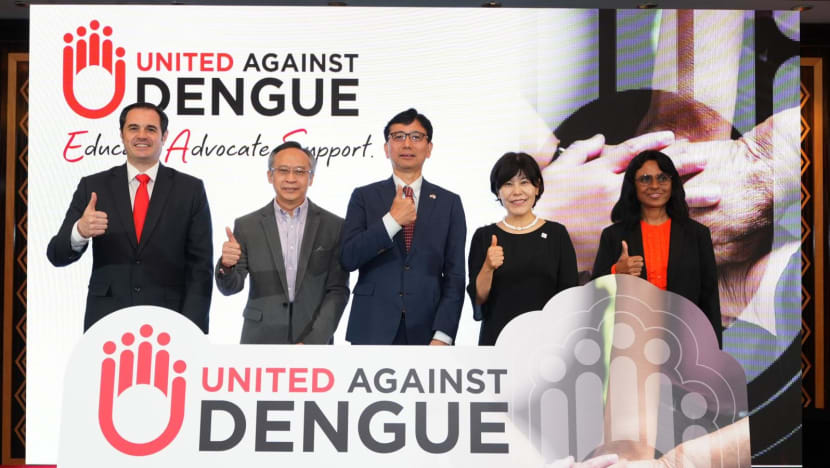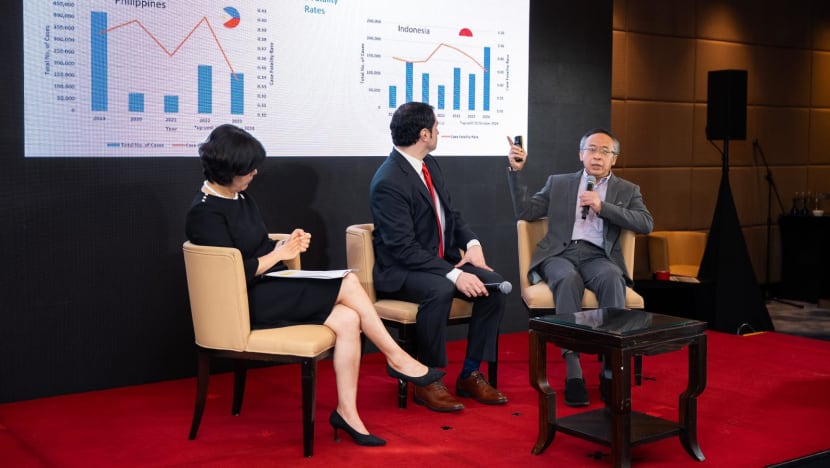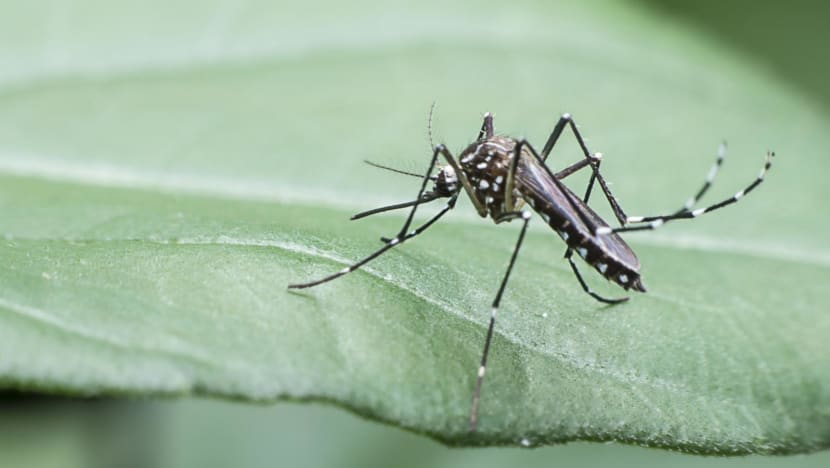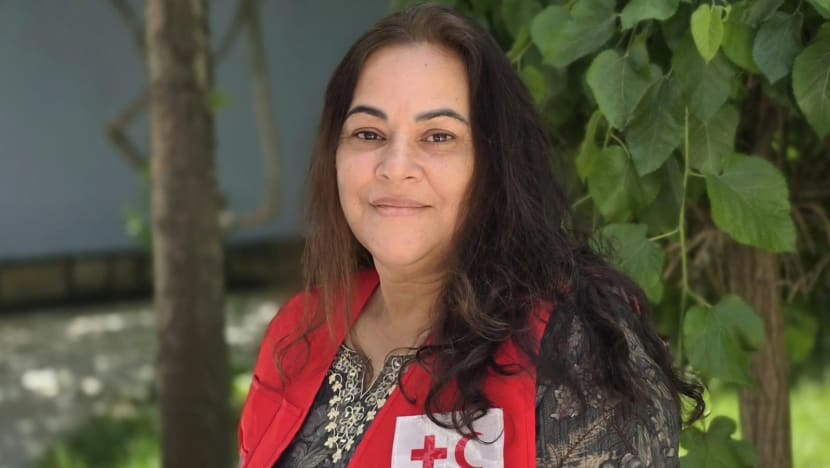How kampung spirit and comics are powering the fight against dengue
A regional partnership, United Against Dengue, taps into Asia’s sense of community – and the creative power of relatable storytelling – to combat a rising health threat.

Regional leaders and health experts at the United Against Dengue collaboration launch event (from left): Mr Dion Warren, area head of India and Southeast Asia, Takeda; Prof Zulkifli Ismail, chairman of Asia Dengue Voice and Action and of Dengue Prevention Advocacy Malaysia; Mr Shikata Noriyuki, ambassador of Japan to Malaysia; Ms Juja Kim, deputy regional director for Asia Pacific at The International Federation of Red Cross and Red Crescent Societies Asia Pacific; and Dr Deepa Gamage, public health specialist, disease control World Health Organization Representative Office for Malaysia, Brunei Darussalam and Singapore. Photos: United Against Dengue

This audio is generated by an AI tool.
What does a strong sense of kampung (community) spirit have to do with eradicating dengue? Quite a bit, it turns out. A collective mindset can help residents curb the spread of dengue and protect one another from its impact.
That spirit comes through in United Against Dengue, a partnership between The International Federation of Red Cross and Red Crescent Societies Asia Pacific (IFRC APAC) and Takeda. To tackle the complex and growing challenge of dengue, the partnership draws on their combined strengths to roll out initiatives in Asia and beyond, structured around three key areas of focus: Education, advocacy and support.
THREE PILLARS, ONE GOAL: A STRONGER DEFENCE AGAINST DENGUE

Under the education pillar, the focus is on building community resilience and readiness through impactful disease education and early preparedness. This includes community awareness campaigns, volunteer training using the Epidemic Control for Volunteers toolkit, and hygiene promotion through community engagement. Enhanced surveillance systems and early-action protocols will also be introduced to guide community responses and improve outcomes.
Within the advocacy pillar, United Against Dengue will ensure the sustainability of preventative measures through policy work and stakeholder engagement. This includes working closely with policymakers, medical societies and community organisations to support the integration of dengue prevention, management and control into national strategies. Regional and national alignment across public health stakeholders will be prioritised to drive unified action and strengthen health system resilience for long-term impact.
The support pillar, meanwhile, is designed to provide care and assistance to communities and individuals affected by dengue.
By uniting science, public education and grassroots participation, this trifecta of efforts harnesses the power of joint action to help the region move closer to the World Health Organization’s (WHO) goal of zero preventable dengue deaths by 2030.
One of the first public-facing projects under the education pillar is a comic by The Woke Salaryman. Through accessible storytelling and practical tips, it helps enhance community readiness from the ground up.
A DISEASE ON THE RISE, A REGION AT RISK

As climate change and urbanisation accelerate, 1.3 billion people across Asia now live in dengue-endemic areas. In just the first two months of the year, the Philippines reported over 62,000 cases while Malaysia recorded more than 122,000 cases and 117 deaths in 2024.
The regional economic toll? An estimated US$950 million (S$1.2 billion) annually.
With rising rainfall, humidity and heat making outbreaks harder to control, countries are adopting smarter, more targeted strategies.
“Joining forces with IFRC APAC, we aim to strengthen the foundation of community resilience by advancing disease literacy, enhancing early-action capabilities and empowering local health systems. United Against Dengue is designed to strengthen and complement existing public and community efforts to combat dengue collectively and ensure that communities are better equipped to anticipate, prepare for and respond to dengue outbreaks,” said Mr Dion Warren, area head of India and Southeast Asia, Takeda. “By collaborating across sectors, including governments, non-governmental organisations, medical societies and communities, and leveraging our collective strengths and resources, we can tackle dengue’s complex challenges more effectively and achieve greater impact, together. This collaboration is a call to action, underscoring the urgent need for unified, multi-sectoral action.”
TAKING A VISUAL APPROACH TO DENGUE EDUCATION

According to Dr Sushma Bhusal, regional thematic lead for health and care at IFRC APAC, the organisation partnered with Takeda on the United Against Dengue campaign in recognition of the company’s commitment to global health. “This collaboration brings together IFRC APAC’s extensive volunteer networks and deep community-based expertise with Takeda’s scientific knowledge, resources and global reach,” she said.
Dr Bhusal added that The Woke Salaryman comic complements the organisation’s existing materials on dengue symptoms, prevention and reducing mosquito breeding sites. These resources are used by volunteers to support ongoing awareness and outreach efforts.
“Dengue prevention requires behaviour change – that’s more likely when people understand the risks in ways that connect with their everyday experiences,” Dr Bhusal observed. “By leveraging relatable content like comics, we hope to motivate communities to act early and work together to stop the spread.”
Launched on Jun 11, just ahead of ASEAN Dengue Day 2025 on Jun 15, the comic will be adapted into multiple languages to reach a wider regional audience.
Mr Warren added that this approach to knowledge sharing and resource mobilisation could strengthen public-private collaboration and serve as a model for future responses to public health challenges in the region.
Learn more about how IFRC and Takeda are empowering communities in the fight against dengue, and explore the United Against Dengue comic, illustrated by The Woke Salaryman.















